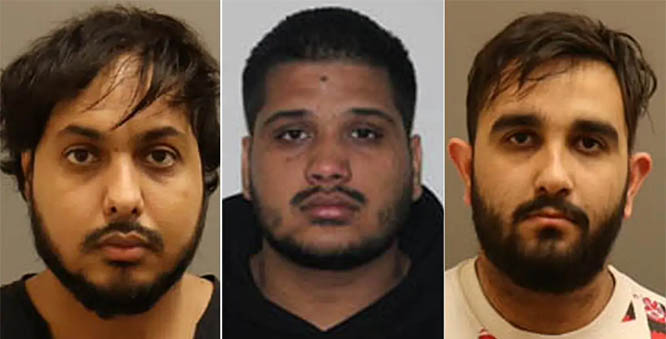New Delhi, Apr 27: BJP's gambit in replacing all its sitting municipal councillors, putting an outsider, actor Manoj Tiwari, at the helm of the state unit and using Prime Minister Narendra Modi as a trump card has paid it handsome dividends in the elections to the three municipal corporations in Delhi.

"A party which won 67 assembly seats just two years back couldn't win even 67 wards," said Tiwari, rubbing it in. For AAP, the outcome could not have been worse, coming as it did on the heels of its humiliating defeat in the Rajouri Garden bypoll and soon after its loss in Punjab and Goa.
It was left vying with Congress for seats and vote share, doing marginally better than the latter. It got only 16 seats in south (BJP 70, Congress 12), 21 in north (BJP 64, Congress 15) and 11 in east (BJP 47, Congress 3). AAP had hoped it would be able to favourably contrast its performance in the state government with BJP's in the MCD, but the strategy didn't work.
Also, by dumping all its sitting councillors, BJP managed to signal a clean break from its 10-year-old legacy even as it rode on Modi's huge post-UP popularity. Raising a scare over disease outbreaks because of the insanitary conditions in the city didn't serve AAP well. The party needs to introspect if it wants to remain a credible player in Indian politics, according to most political analysts. It, however, appears to be in a state of denial, having worked out a consistent strategy of blaming EVM-tampering for defeats.
"BJP has done nothing but spread corruption, dengue and chikungunya in Delhi. There's no reason for people to vote for BJP again. It is unbelievable. If the margin of victory had been low we could have accepted it. But the huge difference is not possible without rigging the elections," said deputy CM Manish Sisodia.
However, later in the day, Kejriwal congratulated BJP on its victory, saying in a tweet that his government "looks forward to working wid (sic) MCDs for the betterment of Delhi".
The question on many lips is: Will Kejriwal & Co now get serious about engaging with the real issues - such as repairing roads and augmenting the bus fleet - instead of being in a permanent state of conflict with the Centre and bristling at every criticism.
Kejriwal, who has stayed out of Delhi for long periods, will have to guard his flock that will now be more vulnerable to temptation from BJP.
In case of an adverse verdict from Election Commission of India in the office-of-profit case, which will lead to the disqualification of 21 party MLAs, such attempts will assume urgency and could pose an existential crisis for AAP.
For its part, BJP, after this massive mandate, cannot afford to let the rot within the municipal corporations it rules continue, say civic experts.
It will have to bring about a perceptible change in the way the corporations function - from streamlining processes to sticking to deadlines to cutting out corruption.
Blaming Kejriwal for denying funds to the corporations won't work because state party chief Tiwari had indicated that they would find new ways, like direct funding by the Centre.
The fact that there has been a marginal decline in its vote share - from 36.7% in 2012 to 36.1% this time - should be a sobering thought.
Tiwari's strenuous campaigning has helped him shake off the outsider tag; he also enjoys the central leadership's solid backing.
The party's immediate challenge is to ensure sanitation and salaries for MCD staff. In this tri-polar contest, Congress chief Ajay Maken's efforts to revive his party's fortunes with virtually no support from other state leaders failed.
Former chief minister Sheila Dikshit stayed away and no other leader was visible during campaigning. They say they were not made to feel welcome. There were rumblings within the fractious state unit over ticket distribution.
Former minister A K Walia threatened to quit and east Delhi strongman Arvinder Singh Lovely dealt a severe blow to the party by actually doing so in a huff, promptly joining BJP.
He was followed by former Delhi Commission for Women chief Barkha Singh, who even questioned Rahul Gandhi's state of health. Having improved its vote share in the Rajouri Garden byelection, Maken ran a largely positive campaign with multiple manifestoes on various issues.
Given the heavy odds he was up against, there is no great surprise over the party's third-place finish. Although he has already sent in his resignation, he is seen as Rahul Gandhi's choice to run the party in Delhi and the options for Congress are limited.
"Our vote share went down to 9% in the 2015 assembly elections and from there it has improved. I took charge as DPCC president when Congress couldn't open its account in the 2015 elections. It has been a difficult journey and party workers worked really hard. We have made a reasonable comeback but it is not what I had hoped for," said Maken.







Comments
Add new comment